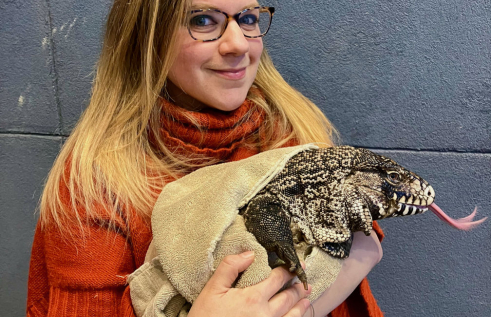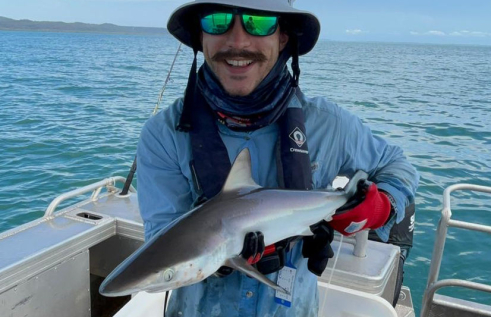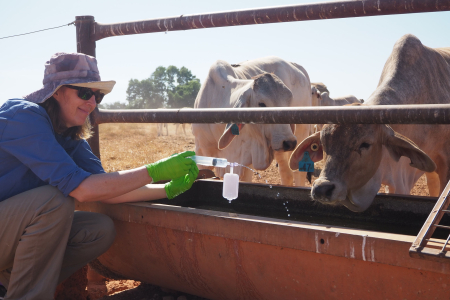RIEL seminar series
The eDNA revolution: advancing biodiversity monitoring while navigating challenges
| Presenter | Professor Maxine Piggott | |
|---|---|---|
| Date |
|
|
| Time |
to
|
|
| Contact person | E: RIEL.outreach@cdu.edu.au | |
| Location |
Yellow 1 level 1 room 33 at CDU Casuarina Campus And online via Zoom (see below for Zoom link) All times are ACST |
|
| Open to | Public | |
Prof Maxine Piggott is currently the Program Leader of the Research Institute for Northern Agriculture (RINA) at Charles Darwin University (CDU) and leads RINA’s tropical biosecurity research group.
Environmental DNA (eDNA) refers to DNA shed into the surrounding environment from living organisms. These organisms can be identified through their DNA sequence and eDNA has revolutionised monitoring in all environments allowing us to detect and better understand hidden diversity. However, there are challenges to overcome.
In the seminar ‘The eDNA revolution: advancing biodiversity monitoring while navigating challenges’, Maxine will give an overview of how eDNA has been used for monitoring biodiversity and invasive species, showcasing when it works well and when it doesn’t. She will demonstrate how the value of eDNA is enhanced when supported by strong sampling design, modelling approaches and quality control.
Maxine has worked in academia, government, and with the Commonwealth Scientific and Industrial Research Organisation (CSIRO). She has been involved in developing and applying eDNA methods for monitoring for over 20 years. Her other research interests include phylogenetics, population and landscape genetics.
Related Events

Ecosystem services and emerging market opportunities
Recently, governments and policymakers have become increasingly aware that economies are approximately 50% directly dependent on nature and that the decline in the health and functioning of natural systems threatens economic output
Read more about Ecosystem services and emerging market opportunities
After the volcano: building a field station in Montserrat, West Indies
Montserrat is a small British Overseas Territory in the Lesser Antilles with an active volcano which began erupting in 1995. For its size, Montserrat supports a wide range of habitats and many island endemics, making it an excellent location for ecological research
Read more about After the volcano: building a field station in Montserrat, West Indies
Shark and ray conservation in northern Australia and Asia
In this seminar we will hear from two emerging researchers from the Northern Shark and Ray Research Group at Charles Darwin University’s Research Institute for the Environment and Livelihoods (RIEL)
Read more about Shark and ray conservation in northern Australia and Asia
